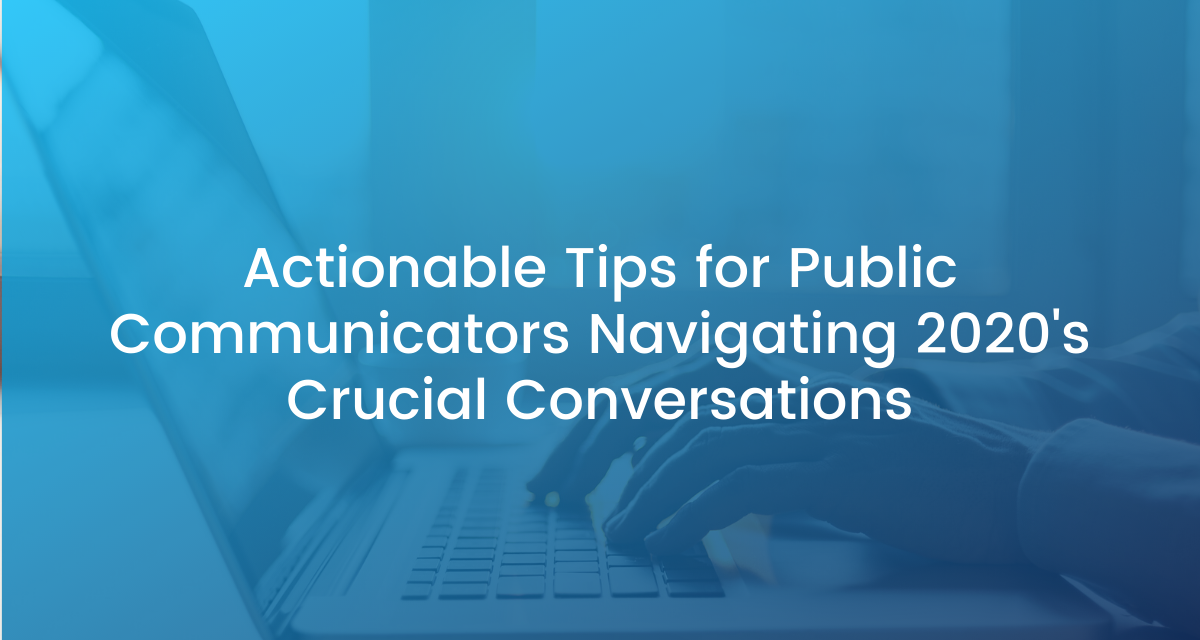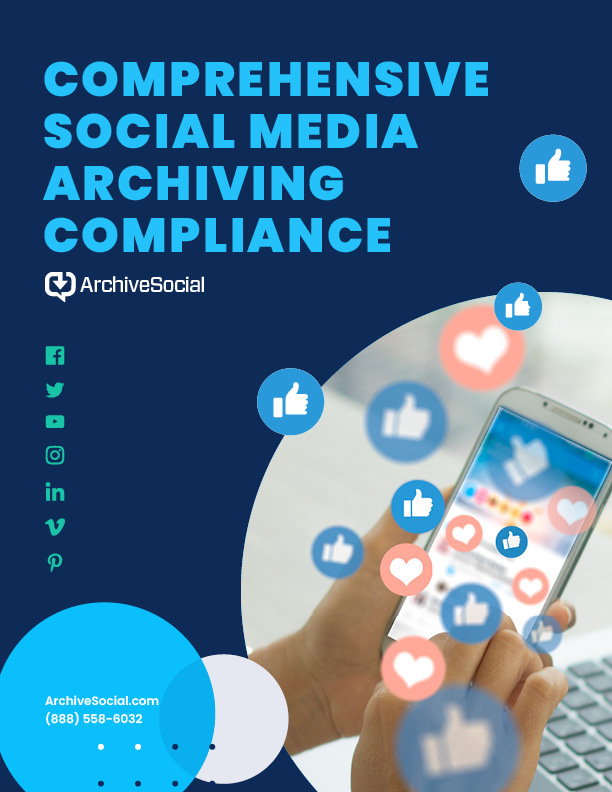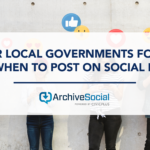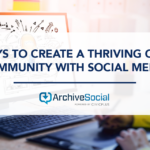In our “2020’s Crucial Conversations: Actionable Tips for Public Communicators” webinar with Kristy Dalton, founder and CEO of Government Social Media and Ray Carey, CEO of ArchiveSocial, we discussed that 2020 has amplified challenges for public communicators with wave after wave of national impact topics, including the COVID-19 pandemic and social unrest.
A Perfect Storm for Social Media Acceleration
These viral events have spread with accelerated intensity and emotion. So far, we’ve seen time spent online surge with social distancing prompting people to stay connected. There’s also been a higher interest in local communities that’s increased the desire for quick answers, sometimes at the cost of context and accuracy. This has left the public desperate for a trusted source of information, “and largely it’s our public agency communicators that are that trusted source in what can be the wild west of social media,” said Carey.
What once was an emerging and optional form of communication has largely now become the form of communication. Even those reluctant to social media have found it a requirement to reach their audiences. “It used to be a question of ‘how do I get noticed’, and now it’s ‘how do I stay afloat?’,” said Carey.
Dalton agreed, pointing out that public communicators are dealing with a massive amount of comments right now and that “many government teams are just a team of only one and that individual is the public communicator for their entire public agency.”
To put in perspective just how overwhelmed communicators are right now, Carey revealed recent growth numbers from the archive. “Since COVID-19, the total social media records per day for public agencies has increased over 41%, just in the last three months,” he stressed. “And 55% of public agencies have a team of only one or two to handle all of their social media communication.”
Dealing With Information Overload
Right now, public communicators are dealing with a dramatic increase in comments, greater need for community outreach, and competing messages. Dalton pointed out that many communicators have been in crisis mode almost all year. “We’re in this constant state of overwhelm, and the complexity isn’t going to change unless we teach leadership how to support us,” said Dalton.
Dalton directed communicators to consider what boundaries look like for them specifically. She advised being clear in how you ask for support. Simply stating “I’m overwhelmed” can get a very different result than a more powerful statement of “You can support me right now by assigning a backup who will monitor social media in my absence for 10hours/week.”
Whatever you do, Dalton noted, “Be very concrete and very specific in your ask to leadership because it’s much easier to respond to that versus a general statement or expression of being overwhelmed.” Carey echoed her sentiment,“If you don’t create the solution, you’re leaving it up to them to guess what will help you. If you’re very specific it might increase the chance to get the help you’re looking for.”
Perspective & Practicing Self-Care
Dalton also emphasized the importance of self care and shared some actionable advice from Counseling Therapist Julia Kristina:
- Give your brain as much predictability and routine as you can
- Give more grace to yourself and others
- Lower your expectations for yourself and be okay with not replying to everyone
- Give yourself something positive to look forward to by building Micro-joys into your day
- Snooze or unfollow your personal profile for your sanity
- Consider deleting social media apps from your phone (if possible)
- If you’re a Chrome user, try Newsfeed Burner extension to block feeds
Transparency & Handling Criticism
In this difficult time, some agencies have gone so far as to deactivate their accounts, and you may be tempted to take a similar action. From a public record perspective it seems like a good strategy, right? If you create no records then you’ll face no requests. But both Dalton and Carey strongly recommended not shutting down social profiles. As you then leave it up to someone else to fill the void and provide your community with information – or misinformation. “It will look like you couldn’t handle the criticism, are stepping back, and have become less transparent,” said Dalton.
Social media helps show your commitment to working with the community, so they don’t feel as if they’re just providing lip service, and humanizes your agency. Dalton recommended some best practices to consider:
- Publish what your policing policies look like on your social profiles
- Encourage law enforcement to include their websites and point people to this to report misconduct
- Be proactive so there are less gaps for others to fill with inaccurate information
- Rolling FAQs are a must that allow you to point people to official and approved messages. Dalton explained there are three types of FAQs that work well: 1) an official public version to host on your website, 2) an internal version used for staging, and 3) an approved internal version for customer service to answer specific questions.
Meaningful Community Outreach
- Make sure the right people are seeing your social media messages. Don’t be the wall blocking information and keeping messages from leadership, instead, inform on what’s happening and provide stats for next steps needed to gain actionable results.
- Some agencies are planning social media forums. Figure out what’s right and what tools will be most useful for your specific community and leadership.
- Accept questions/comments from the public. And post your administration replying back. This allows for control, truth and a humanized approach.
You Can’t Rely On Social Networks for Compliant Record Keeping
The fact is, you won’t be able to simply go back through Facebook and Twitter and find your records when a request comes in. Social networks are designed for the general public, run by private third parties, and the records originate and reside outside of your control. As these platforms constantly change, there are no guarantees they will preserve records.
At ArchiveSocial, we did a study on 55+M records in 2019 and found that less than a year later, 4+M of those records were no longer available to the public. That’s one in 12 records lost! To ensure your compliance, there are three steps that Carey outlined that you can take right now:
- Establish a social media policy
- Create a comment moderation guide
- Capture, monitor and retain your social media
Interested in more ways to navigate your crucial conversations? Check out these helpful resources:
- “2020 Crucial Conversations: Actionable Tips for Public Communicators” Webinar Replay
- “Crucial Communications” FAQ document
- Government social media policy template
- Comment moderation guide
- “Trolls & Their Tolls on Social Media Communicators” blog
- “How to Respond to a Social Media Comment” chart
GSM biweekly Twitter chat: every thursday 1:00p.m. through 4:00p.m. PST
Counseling therapist: Julia Kristina http://JuliaKristina.com







